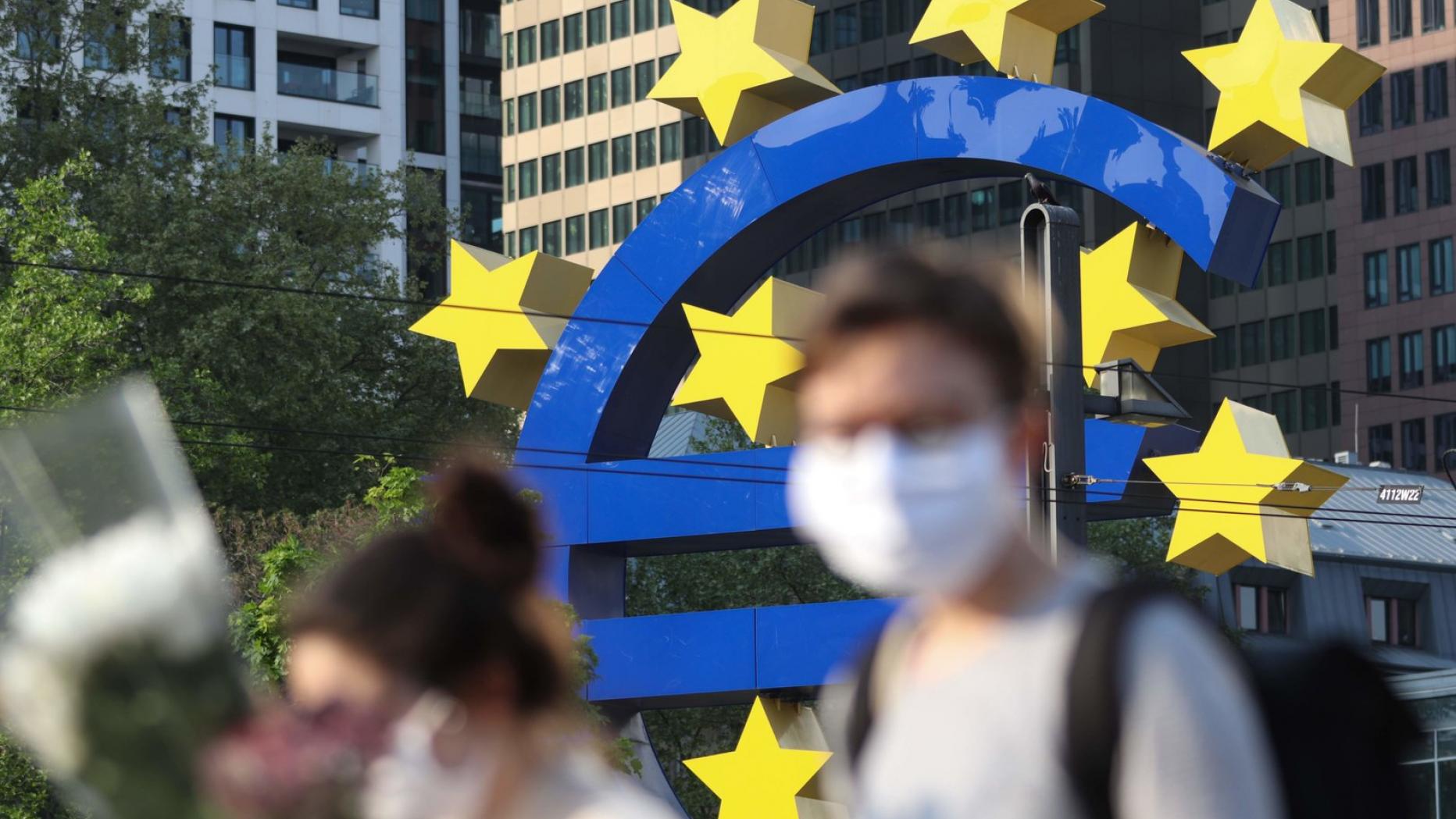The European Central Bank recently announced that the Eurozone economy is likely to recover in the second half of 2020, but the corona pandemic will prevent a growth similar to 2019 by 2022.
The coronavirus rescue packages were not thought to spread so rapidly in Europe, but now, after the United States, European countries are in second place, and the quarantine that was considered the only solution to deal with the virus seems to have wide-scale economic consequences for these countries.
The tourism, hotel management, aviation and many other industries have been affected by corona and millions of people have lost their jobs. Many businesses have put power adjustment on the agenda to reduce their costs.
After a decade of austerity policies to reduce the budget deficit and debt levels following the 2008 crisis, European governments had just been able to overcome the consequences of austerity policies, but they are facing a deeper crisis than the 2008 crisis, as the European economies are in deep recession today and economic enterprises are facing bankruptcies and rising unemployment rates.
The unemployment rate is one of the signs of the economic situation in any country. Unemployment is also a major consequence of corona. Italy, France, Spain and the United Kingdom host millions of tourists each year. The tourism industry, directly and indirectly, creates millions of jobs. Airlines, hotels, restaurants and thousands of other jobs in the tourism industry went bankrupt, losing millions of jobs. Small businesses and self-employed businesses in connection with tourism are the main victims because of implementing quarantine policies to counter the spread of the corona chain.
In the meantime, countering the outbreak of the coronavirus has cost European governments dearly. The hospitalization and treatment of tens of thousands of people with coronavirus have cost the healthcare system dearly. European governments have set aside rescue packages of tens of billions of euros to prevent the bankruptcy of businesses and the loss of millions of jobs. These budgets are separate from the EU’s €500 billion budget to deal with the consequences of the coronavirus outbreak.
Thus, the coronavirus has put Europe in a precarious position since World War II.
Countries such as Italy, Spain and the United Kingdom, which have the highest rates of coronavirus and deaths, have experienced an extent of the decline in economic growth and economic power and rising budget deficits and debt levels since World War II that has been unprecedented.
During the 2008 crisis, the countries were able to overcome the crisis in a period of 8 to 10 years with the help of the European Union, effectively reducing the unemployment rate and creating minimal economic growth, but corona has effectively restored the economic situation of European countries to the time before the 2008 economic crisis. France’s budget deficit has risen to 9 per cent and its debt to 115 per cent of the GDP.
Britain is also facing rising unemployment and slowing economic growth. The economic consequences of corona are so profound that these countries will not be able to achieve economic stability, growth and prosperity in the near future.
The fragile economic situation in European countries will also have political consequences. Emmanuel Macron came to power in 2017 with the slogan of economic reform, but in practice, the reforms that Macron has made over the past three years have been destroyed by the corona disease, and his chances of winning the 2022 election have diminished.
In the UK too, Boris Johnson is facing the most serious economic challenge of recent times. British Prime Minister Boris Johnson’s plan is to reach a comprehensive agreement with the European Union by December 2020 and a soft exit from the bloc, but in practice, the spread of the coronavirus has hampered negotiations between London and Brussels.
Despite corona’s economic impact on Germany, the country is the most successful European country in managing the corona crisis with the least casualties compared to its population. Berlin has managed to keep the number of corona victims at a low level, as well as quarantine conditions in a way that has taken the least costs.
But among European countries, Italy and Spain have the worst economic conditions following the corona pandemic. Of course, the two countries did not have a good economic situation before the corona outbreak, and they had very low budget deficits and economic growth. Thus, the widespread prevalence of corona in these two countries and a large number of casualties and the few month quarantines enforced in Italy and Spain have made the economies of these countries more volatile and vulnerable.
The attention of European governments to the internal situation following the outbreak of corona and the disregard for the conditions of their other allies in the European Union has strengthened nationalism and divergence in the European Union. Italy was the first European country to face the widespread outbreak of corona, but none of Italy’s allies in the European Union responded to its request for help, to the point that European Commission President von Dreinel had to formally apologize to Italy.
Just as the crisis-stricken European countries were unable to revive their economies following the 2008 crisis without EU and IMF bailouts, the crisis-stricken economies of the EU member states will not be revived without solidarity and cooperation of European states despite strengthening of nationalist currents. However, it will take time to revive the European economy, as it took a decade for the crisis-stricken European countries to emerge from the crisis of the 2008 crisis.
European governments need borrowing to finance the budget needed for economic recovery and growth and help households and businesses on the verge of bankruptcy. This borrowing will also increase the budget deficit and debt levels. This borrowing will take years to balance the two main indicators of the budget deficit and rising debt levels.










0 Comments